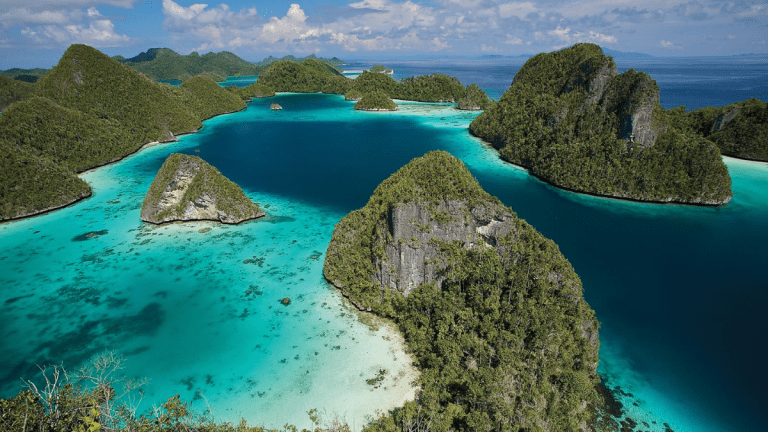
🕒 Last updated on June 27, 2025
The Hidden Cost of “Clean” Energy
Indonesia is home to thousands of beautiful islands — some of the most magical places on Earth. One of these places is Raja Ampat, a remote island group in West Papua. Known for its clear blue water, coral reefs, and rare animals, it’s often called the “last paradise.” But something is changing. This paradise is being destroyed — and it’s all for something many people think is good: batteries for electric cars.
To power the world’s green future, the demand for a metal called nickel has exploded. Nickel is a key part of electric car batteries. And Indonesia has more nickel than anywhere else in the world.
But getting nickel out of the ground isn’t easy or clean. It means cutting down rainforests, digging huge holes, and building giant factories that burn coal. The same coal we’re trying to stop using to fight climate change. These nickel factories are now rising across Indonesia, especially on small islands like those in Raja Ampat. And they are tearing the land and sea apart.
Mining in a Protected Paradise
By law, Indonesia has rules to stop mining on its smaller islands — especially places like Raja Ampat, where reefs and forests are protected. But those laws are not being followed.
Mining companies have already started operations on islands where they shouldn’t be. On Kawe Island, for example, part of Raja Ampat, the middle of the island was cut open for nickel mining. Forests were cleared. Muddy water from the mines ran into the sea, killing coral reefs and driving away fish. Some of the islanders who rely on fishing and tourism have now lost their main source of food and income.
In 2025, a company quietly set up a mining base on another island nearby called Batang Pele, near sensitive dive sites and family-run eco-lodges. A few weeks later, a 3,000-hectare mining permit appeared for Waigeo Island — home to birds found nowhere else on Earth.
Even though the government cancelled a few permits after public complaints, the damage is already visible. Rivers have turned cloudy. Coral is dying. And more mining could still happen. These cancellations may not last, and new permits could be handed out again.
From Forest to Factory — and the Reef Pays the Price
To mine nickel in Indonesia, companies use a method called strip mining. They don’t dig deep underground. Instead, they scrape off the surface of the land. This destroys everything in the way — trees, animals, even whole villages.
The loose soil gets washed into rivers by heavy rains. This water, filled with metal dust and mud, flows into the ocean. When it reaches coral reefs, it smothers them. The coral, which needs sunlight and clean water to live, begins to die.
Indonesia’s Risky Bet on Russian Oil Discounts After Brics Membership
Nickel processing is also very dirty. Unlike other countries that mine higher-quality nickel deep underground, Indonesia’s nickel is lower quality and harder to clean. So factories use coal-fired power plants to process it. These plants create air pollution and add to global warming — the very thing electric cars are supposed to fight.
And the damage doesn’t stop with coral. Mangroves, the trees that grow between land and sea, are also being wiped out. These trees are vital. They protect coastlines from storms, filter the water, and provide shelter for fish. But mining companies often clear them out, leaving only mud. Local people who depend on mangroves for food and medicine are left with nothing.
In some villages, the water is no longer safe to drink. Runoff from nickel mines has caused an increase in illnesses. Nearby rivers, once clean and full of life, are now polluted and brown. Wildlife is disappearing. Tourism is declining. And communities that have lived in harmony with nature for generations are being pushed aside.
All of this destruction is happening in the name of building a cleaner world. But the places paying the highest price — like Raja Ampat — are the ones that have always protected nature best. Now, they are being turned into sacrifice zones for the global battery industry.